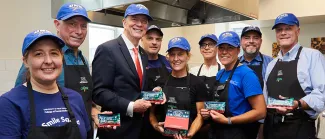
UNE will produce the sweet-and-savory, cranberry-kelp bars starting this year.
The cranberry-almond-kelp creations that were cooked, mixed, pulverized, and cut this summer in the University of New England’s Teaching Kitchen looked like 4-inch, pocket-sized treats. But make no mistake, the impact of the University’s new seaweed snack will be monumental, said Jim Irwin, CPA, UNE senior vice president for Finance and Administration.
“Eventually, they’ll say ‘SeaMade Bars from UNE,’” Irwin said.
This summer, SeaMade Seaweed Company co-owners Tara Treichel and Mark Dvorozniak gifted UNE their nutrition-bar company to transition it to a UNE pedagogical tool that will offer a highly visible example of interdisciplinary collaboration and an all-natural, honey-and-kelp treat made by students using locally sourced ingredients.
“This will be a great opportunity to see what we can do with different species of kelp,” said UNE President James Herbert, Ph.D., as he helped cut the first SeaMade Bars made at UNE on Aug. 21. “It's a super exciting way to tell the stories of our seaweed farms and how we can produce something sustainable from them.”
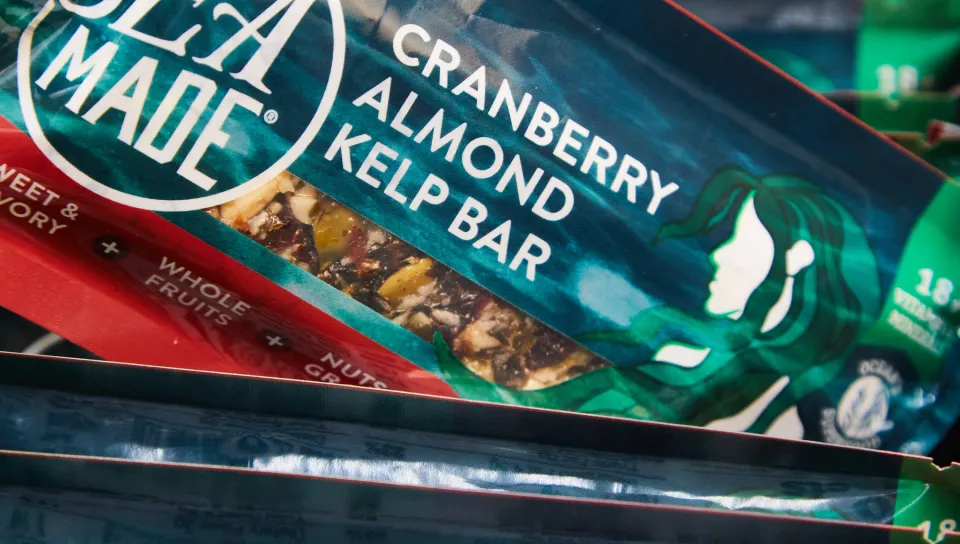
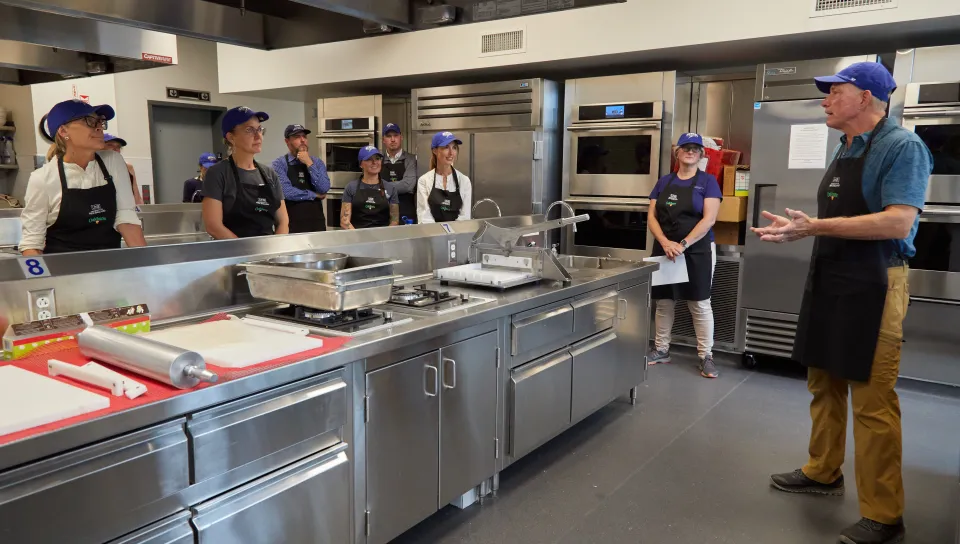
Treichel started producing SeaMade Bars and selling them in southern Maine in 2016. Later, Dvorozniak joined her to help grow the company. But the limited availability of processed seaweed created challenges in meeting the wholesale demands. Last year, the co-owners decided gifting their company to UNE was the perfect way to keep the company founded on sustainability viable, especially with students growing the kelp in aquaculture classes.
“Having this product get out into the world, out into the market, and to have seaweed made available to people in a grab-and-go, easy-to-eat kind of way is really exciting,” Treichel said. “Students, with all of their ideas and energy, can work on new nutritional aspects, flavor aspects, and maybe take it further than we were able to. I’m very excited today.”
On Aug. 21, in the UNE Teaching Kitchen located in Decary Hall on UNE’s Biddeford Campus, a kind of UNE “dream team” for innovation, sustainability, and collaboration gathered to share in the first production of the bars at the University.
As Alethea Cariddi, M.S.Ed., UNE associate director of sustainability, watched the melted honey being mixed into a large steel bowl, she noted how UNE will soon leverage its supply of honey from the UNE beehives for the bars.
Associate Professor Carrie Byron, Ph.D., who studies regenerative seaweed aquaculture in partnership with Atlantic Sea Farm, will help produce the kelp used in the bars. UNE’s School of Marine and Environmental Programs has already applied for a farming lease from the Maine Department of Marine Resources.
“One of my visions for my lab is to cultivate other species of seaweed to figure out what is more nutritious. We grow sugar kelp, but we’re permitted to grow other species,” Byron said as she watched Treichel mix the bars’ thick batter.
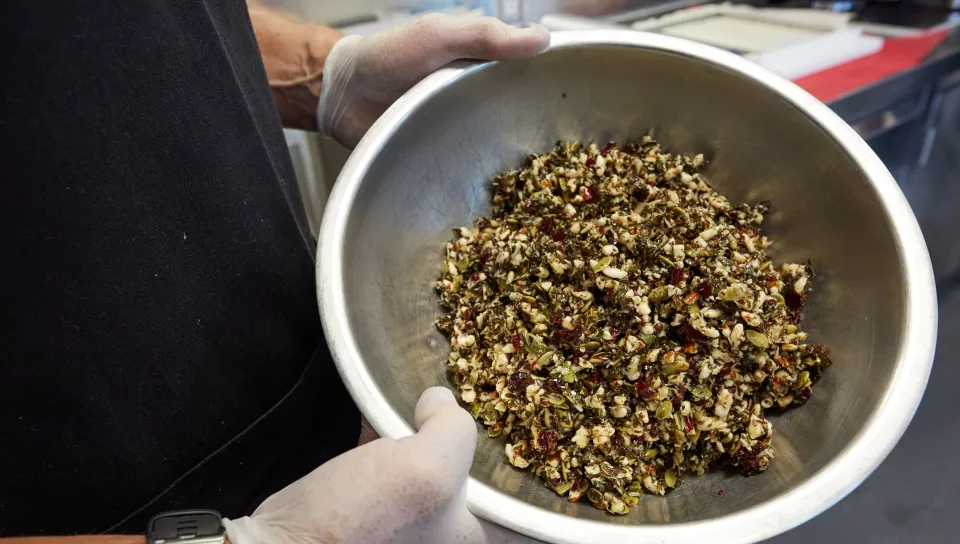
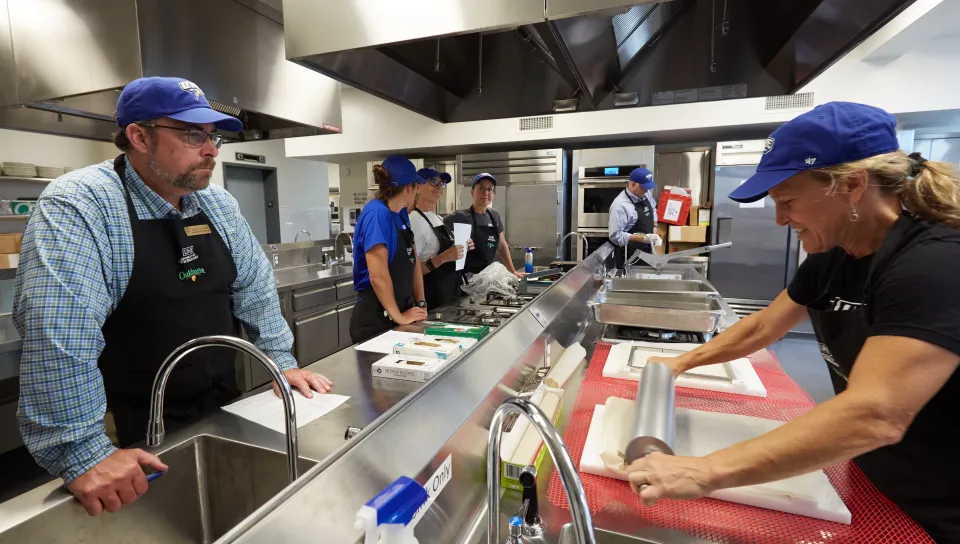
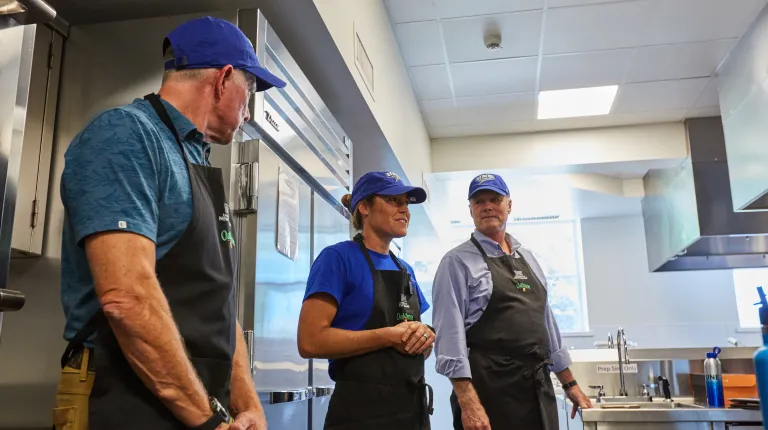
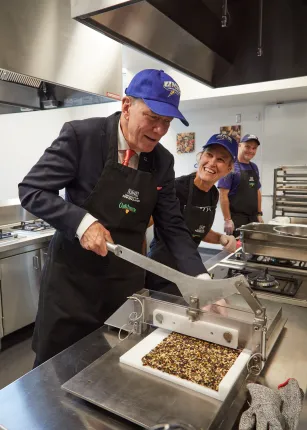
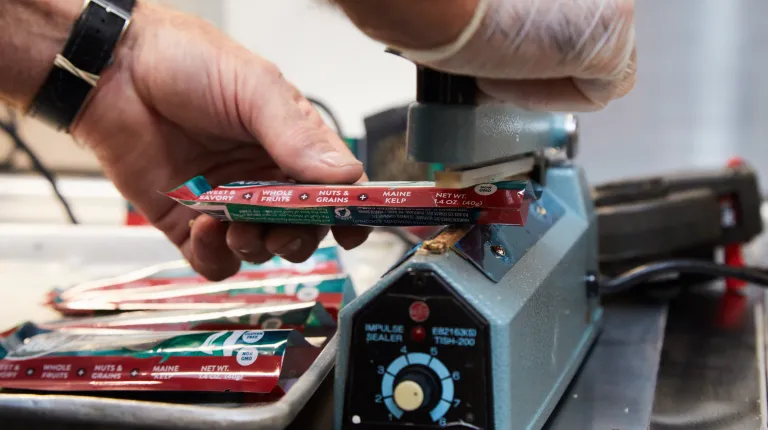
As Lisa Herschbach, Ph.D., UNE’s director of the Office of Innovation, watched the bars being cut, she commented on how 3D printers could help increase productivity in that area. Nearby, Norm O’Reilly, UNE inaugural dean of the College of Business, also considered other ways to scale up the business to increase the profit margin.
A workforce of willing, creative students will help, noted Cameron Wake, Ph.D., the director of UNE North: Center for North Atlantic Studies, who will manage the new initiative.
“This year, we’re going to have an innovation team of 10 students working on this project over the course of the semester and they’re going to need mentorship from lots of people,” Wake said.
That team of student innovators will oversee the production, marketing, sales, and branding of the kelp bars — a task, Wake said, that will set their majors apart from those at competing institutions, majors such as Nutrition, Maine Entrepreneurship and Sustainability, Marine Science, and Business.
Up until now, UNE’s Teaching Kitchen has been utilized by five nutrition courses twice a year. Now, it will also house the SeaMade Bars operations under the direction of Teaching Kitchen Coordinator Emily Estell, M.P.H., an assistant clinical professor of nutrition who is also a registered and licensed dietitian in the state of Maine.
Read press coverage in MaineBiz (Sept. 30, 2024), Portland Press Herald (Sept. 30, 2024), and WGME 13 (Sept. 30, 2024).